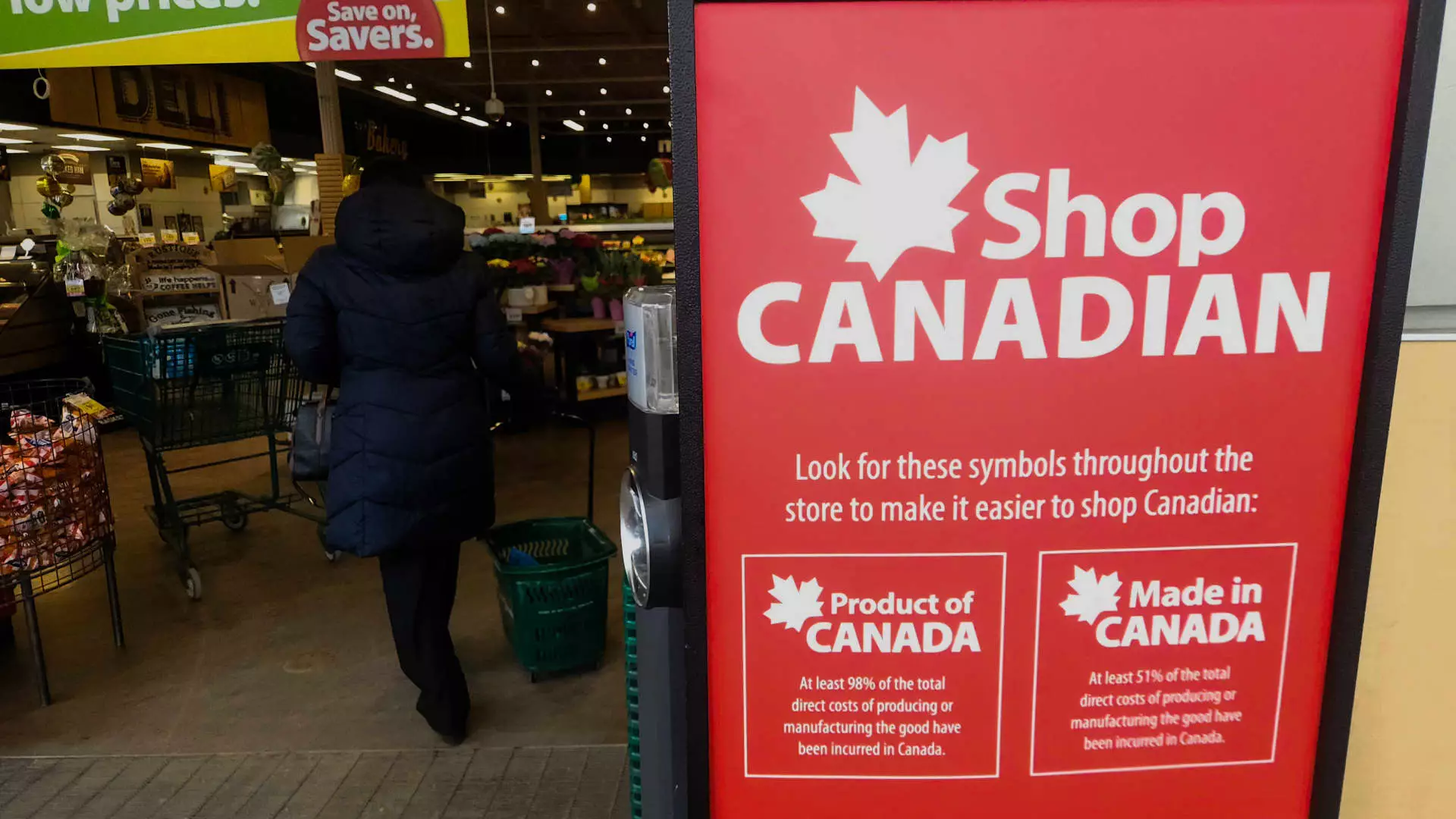Tariffs are often branded as a powerful tool used to correct economic imbalances and protect domestic industries. However, when it comes to the relationship between long-standing allies such as the United States and Canada, the implications of such policies can be devastating. The imposition of tariffs by the Trump administration, particularly those targeting Canada’s energy sectors and crucial imports, does not merely impact trade figures; it threatens the very fabric of trust and cooperation that has defined U.S.-Canada relations for decades.
In 2024, a staggering $762.1 billion worth of goods crossed the border between these neighbors, reinforcing not only their economic interconnectedness but also their interdependence. Tariffs designed to “rebalance” trade may arouse economic nationalism, yet they risk severing ties forged through collaboration and peace. A nationalistic approach to trade can quickly breed animosity, especially when business owners—those most affected by the punitive measures—feel personally betrayed by their government.
Reviving National Pride Through Local Choices
In response to the tariffs, some Canadian businesses have taken a stand by promoting homegrown products, effectively redefining the narrative around their offerings. For instance, Balzac’s Coffee Roasters humorously rebranded its popular Americano as a “Canadiano,” playfully highlighting its Canadian identity while showcasing the resilience of local businesses. Additionally, grocery chains like Your Independent Grocers have gone a step further, proudly labeling items prepared in Canada while indicating tariff-impacted products with a visible “T” logo in their stores.
This strategy isn’t just a marketing gimmick; it’s an emotional response to what many Canadians perceive as an unprovoked attack. Trade should ideally elevate both nations, fostering goodwill and partnerships, but these tariffs serve as a stark reminder of the fragility of international relations. Instead of uniting people through shared economic goals, tariffs risk reverting to an “us versus them” mentality, where the scars of trade wars fester and distrust incubates.
The Emotional Toll on Business Owners
The Canadian Federation of Independent Business (CFIB) has highlighted the emotional impact of these tariffs on its members. Corinne Pohlmann, a leading voice within the CFIB, articulates the distress felt by small business owners, many of whom rely on both sides of the border for survival. The notion that one’s government could turn against an important trading partner feels like a betrayal—a sentiment shared by a growing number of Canadians who value the long-term stability and predictability of international trade relations.
According to a recent CFIB survey, over half of the respondents agreed that the U.S. can no longer be seen as a reliable trading partner. The uncertainty breeds hesitation; entrepreneurs are increasingly cautious about forming partnerships across the border, fearing that the whims of changing political tides could obliterate hard-earned contracts overnight. This eroded trust poses an existential threat to the existing network of trade relationships that have flourished for years.
Retaliatory Measures: A Double-Edged Sword
In a tit-for-tat reaction, Canada has enacted its retaliatory tariffs, yet these measures can create a dangerous loop of escalation. The Liquor Control Board of Ontario’s immediate cessation of purchases from U.S. suppliers underscores how quickly relationships can sour. As signage within stores communicates the rationale behind the absence of beloved American products, consumers are left grappling with the tangible consequences of what began as political maneuvering.
In practice, these retaliatory measures might hurt Canadian consumers more than they benefit local businesses. The heavy-handed nature of tariffs may initially seem like a show of national pride, but it often compromises the very choice that free trade aims to provide. Not only do we risk alienating ourselves from a critical partner, but we also inadvertently penalize consumers who crave diversity and quality in their shopping experiences.
The Soft Power Paradox
Antony Blinken, former Secretary of State, warns that the U.S.’s global “soft power” and influence may diminish as a result of these tariffs. In a landscape where international relationships can dictate geopolitical and economic stability, the willingness to embrace cooperative trade policies is essential. While a punitive approach can extract short-term concessions, history shows it generally leads to long-term fracturing of relationships.
It’s crucial to understand that soft power extends beyond economic transactions; it encompasses cultural, social, and diplomatic ties. As Canada is left grappling with the shockwaves of U.S. policy decisions, the potential for lasting damage looms large. The question remains: Will the benefits of tariffs outweigh the risks of alienating a nation that shares not just a border, but a rich tapestry of interconnected lives, cultures, and economies?
In the face of increasing trade tensions, it’s crucial to advocate for collaboration over confrontation. The repercussions of these tariffs extend far beyond economic data; they resonate deeply within the hearts and minds of individuals, ultimately affecting the future of U.S.-Canada relations. As we stand on the precipice of a trade war, we must ask ourselves—are we willing to fragment what was once a strong alliance over policy choices that could so easily be reconsidered?


Leave a Reply